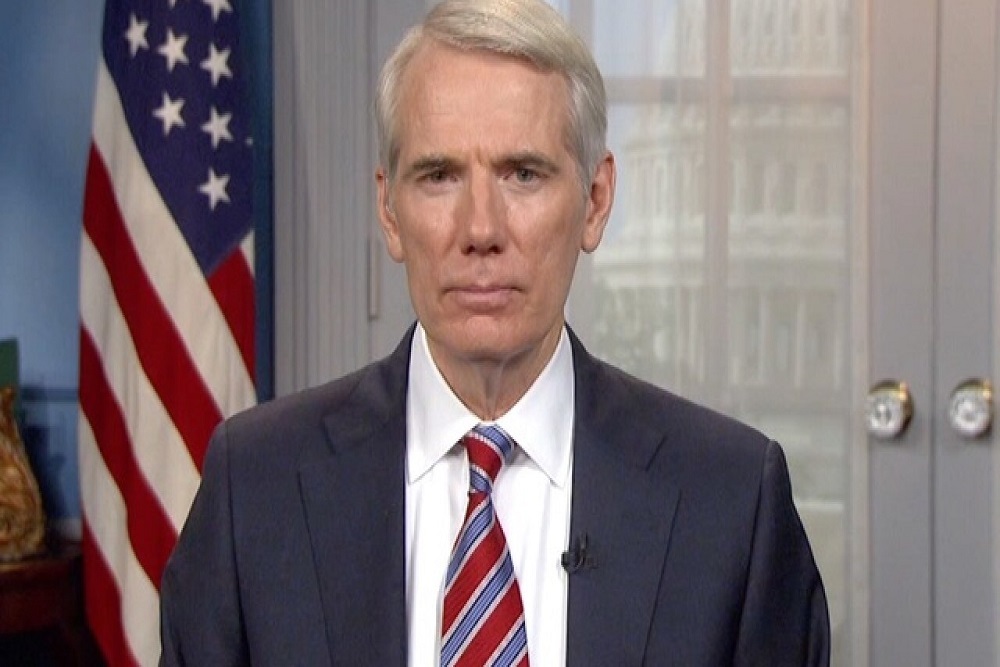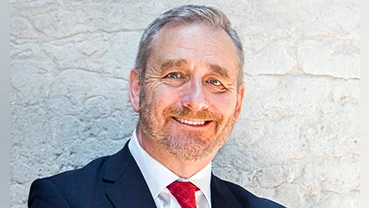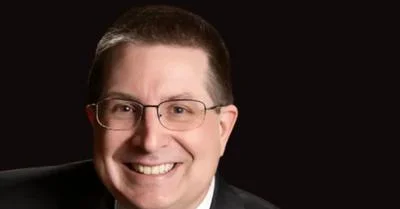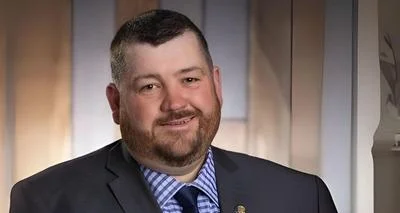Today during a Senate Foreign Relations Subcommittee on Europe and Regional Security Cooperation hearing, U.S. Senator Rob Portman (R-OH) pressed State Department official Amos Hochstein, for updates on the current efforts by the U.S.-EU Energy Security Task Force to reduce Europe’s dependence on Russian fossil fuels and strengthen European energy security. Senator Portman highlighted the approximately $870 million in energy revenues from Europe that are continuing to fund the Russian war machine, enabling the Kremlin’s ongoing assault against Ukraine. Portman recognized Europe’s efforts to reduce its reliance on Russian energy, most recently through its sixth sanctions package that included a partial ban on Russian oil, but urged more action to restrict these revenues. He also discussed the importance of building out capacity and energy infrastructure in Europe, such as for liquefied natural gas, hydrogen, and nuclear energy technology, including through U.S. International Development Finance Corporation and EXIM Bank financing.
A transcript of Senator Portman’s questioning can be found below and the video can be found here
Senator Portman: “Well, thank you first, thanks to the witness, Chairman Shaheen and Ranking Member Johnson for holding this hearing. It’s really an important topic. We’re now in the 106th day in the war against Ukraine. I just met with a bunch of Ohioans who are Ukrainian-Americans who are very frustrated by what they see in Ukraine with the Russians having superior weapons and then our sanctions against Russia, the global sanctions, not being as effective as they should be. I have focused a lot on this issue of energy because that is where most of the money is coming from to fund the war machine. $870 million a day, roughly, coming from Europe alone to the coffers. With big profit margins, that enables Putin to continue to fight this war without the kinds of consequences I hope we could put in place. So it’s good that the European Union is beginning to, over a six to eight month period, wean themselves from Russian oil but too little, too late. So that is my biggest concern, is that we are not doing what we need to do to be able to actually have the Putin regime feel the pain. 10-12 percent reduction in their economy, 40-50 percent reduction in the Ukrainian economy, as an example, over the past 106 days. Mr. Hochstein, I understand you are currently serving as a senior member of the U.S.-European Taskforce on Energy Security and, again, I have said positive things about that, but have also said they need to move more quickly. Can you please provide us just a brief update, maybe you already have, and specifically what is in this work plan? We haven’t seen publicly what is in the work plan. I would love if you could provide me with updates of progress of this task force as we go forward, but wonder if you could give us a report, maybe you already have today and I missed it, specifically on what the work plan is.”
Mr. Amos Hochstein, Presidential Coordinator, U.S. Department of State: “Sure, Senator. The taskforce, we have a mechanism called the U.S.-EU Energy Council, which addresses sort of long-term relationship between the United States and the EU. So the taskforce was created not to disrupt that work in the long-term, but rather to address things that are the immediate concern. I co-chair the taskforce with EU Commission President von der Leyen‘s chief of staff, Bjoern Seibert. We are looking at two parallel things that we want to achieve through this taskforce. One, is to increase the amount of gas flowing into Europe on an immediate basis. We’ve committed to try to, from the U.S., increase that by 15 BCM this year. That’s not just LNG from the U.S., but from the U.S. using our diplomatic efforts and creative thinking to provide that gas through pipeline and LNG from around the world. I think that we are making significant progress towards that goal. Second, we want to be in a place where we can increase the supplies of LNG to Europe by 50 BCM by the end of the decade. To do that though, Europe has to take its own steps. It has to build the infrastructure, which it had not done. And it has sign contracts – be willing to sign long-term contracts. You’re seeing the work being done in Germany, they’ve announced the creation of two new LNG terminals. They are going to have three or four LNG floating terminals for interim. That should start operating – a couple of those should start operating by the end of this year. So that’s the commitments that the taskforce started working on.”
Senator Portman: “Can I interrupt you there? I’ve heard so many different estimates on how long it is going to take to get these import terminals in effect, in position. You’re saying that it could happen in the next six to eight months?”
Mr. Hochstein: “So there’s different kinds of terminals. So there is the onshore full-time terminal that takes years to do. That takes five years to build. But in the interim, if you can get a ship that comes in, docks in your port, you have an interconnection that you build a short pipeline, that can be done within a matter of under a year. So we are going to see a couple of those in Germany. Accelerate, an American company, just signed a contract with Finland. It’s going to have one hopefully in October, connected to Estonia, and then moved to Finland to address the Finland-Estonia Baltic markets. So these are the kinds of things that we are going to try to do. We worked with the Norwegians and there is already an announced increase of five BCM from a field and LNG terminal in Norway that is coming online now. It’s in its final stages. That’ll do about five BCM. Working in North Africa and the East Mediterranean, Israeli gas through Egypt and Jordan to get to Europe as well. So those are the kinds of things on gas, but second of all as I talked about a little bit earlier, we also have to reduce the demand for gas using far better technology, efficiency standards – there are things that we can do on an immediate basis, some with American companies, some with Asian companies that have the technology to do that. Europe buys a 140 BCM of pipeline gas from Russia. That is not something that is easy to replace under the current market.”
Portman: “Are we going to meet our goal of adding 15 to that this year?”
Mr. Hochstein: “I believe so.”
Portman: “And I see that between January and April we increased about 18 percent of our LNG exports, about 74 percent of which is going to Europe. Is there enough infrastructure to be able to absorb what we are sending – these increased amounts?”
Mr. Hochstein: “So for now, yes. But if you look at every available terminal today, the capacity is full. That is why we are working with them on how do you address the capacity? And there may be another LNG terminal that we can get in place by the end of the year in Albania, so, we are trying to see what we can do with the available infrastructure, the increase of immediate infrastructure, as well as the long term infrastructure, and then make sure that the gas is available to supply it.”
Portman: “Well it sounds like we are not going to have enough gas to replace, as you say, this incredible dependency that they unfortunately developed with Russia. So thinking outside the box, and then I’ll end my questioning. Thank you guys for your indulgence. What else – I mean you mentioned there is the efficiency. That’s fine. They are more efficient than we are already. There are technologies to help on that. One thing that some of these countries are still using – nuclear power, France in particular, Romania. I was just in Romania last week. They are going from 20-40 percent nuclear. They want help from us by the way. Please help us with EXIM bank to provide them the loan they need to make that happen. They are kind of frustrated with us. Since they left the Chinese company and decided to go with us, we need to help them more. But what else can we do? Hydrogen technology – I mean is there something else we can do to sort of leapfrog this? Otherwise it seems to me we are going to be playing a game of catchup.”
Mr. Hochstein: “I agree completely. So first I think that they are not necessarily more efficient than we are. I think we are more efficient.”
Portman: “I’m talking about residential and commercial efficiency standards.”
Mr. Hochstein: “Yeah. Me too. Well- the standards are there, but because they don’t use things like smart thermostats –“
Portman: “Okay good, so there is an opportunity to do more.”
Mr. Hochstein: So we are working with the American private sector and others to see how we can surge and make the adjustments to these technologies to make sure they fit the European models. I want to touch on Romania because I think that this is critically important. We supported their effort on SMR, on modular reactors. They are right to be frustrated with us. I am in touch with them directly. I think that is a key thing for us to support is advanced nuclear, and not just traditional, but as go into SMR. I think that Czech Republic, Romania, Poland – seeing how much we can do to be helpful there. They need the support financially from us, not just from EXIM bank. There are feed studies that need to be done that we should be helping finance through existing DFC, DFCA, etc. that’s something that I think will be a step change in dependency because electrifying the entire heating system is going to be extremely difficult. So we have to get that step of electrifying and then supplying the electricity.”
Portman: “Well thank you for being an advocate for moving ahead aggressively there since they have made a decision to go with us rather than China. We got to step up. That will be a model, as you say a template for the region. They also built a cell energy to places like Moldova who are desperate for it and don’t want to be so dependent on Russia and the Transnistria plants. So thank you very much for your advocacy of that and let us know if we can be helpful.”
Original source can be found here.






 Alerts Sign-up
Alerts Sign-up